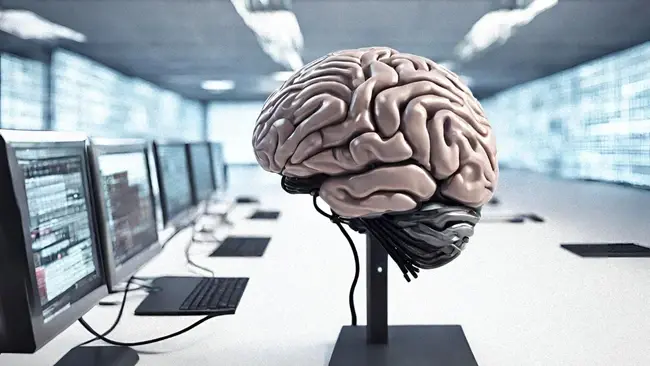The first human patient implanted with the Neuralink brain chip has seemingly made a full recovery and can now control a computer mouse using their thoughts.
During a recent 'Spaces' event hosted on social media platform X, which is also under the ownership of Elon Musk, the tech mogul claimed exciting progress.
"Progress is good, and the patient seems to have made a full recovery, with neural effects that we are aware of. Patient is able to move a mouse around the screen by just thinking,” Musk said.
In an earlier post on X, the billionaire stated the chip aimed to be able to treat people like the late theoretical physicist Steven Hawking who had motor neurone disease, allowing them to ‘communicate faster than a speed typist or auctioneer.”
Enables control of your phone or computer, and through them almost any device, just by thinking.
— Elon Musk (@elonmusk) January 30, 2024
Initial users will be those who have lost the use of their limbs.
Imagine if Stephen Hawking could communicate faster than a speed typist or auctioneer. That is the goal.
Despite promising initial results reported of the first patient being able to control a computer mouse with their brain, many remain dubious about the integrity of Neuralink’s real world, more complex medical applications.
On an appearance on Lex Friedman’s podcast in 2019, Elon Musk claimed confidently that Neuralink “will solve a lot of brain-related diseases," and included autism in a long list of proposed applications.
This implication raised many eyebrows about the honesty of claims related to Neuralink’s potential, given that autism is a complex neurodevelopmental disorder and not a disease that can be ‘solved.'
Not only does this undermine the credibility of statements around Neuralink’s abilities but also contributes to the stigmatization of the neurodiverse community that strives to promote understanding of autism and other neurological conditions.
This lack of credibility also impacts the real world adoption of the technology. In these early stages primary concerns surround safety, especially with claims from whistleblower workers that an estimated 1500 animals perished in the initial testing process, prompting a USDA probe.

What is Neuralink?
Founded in 2016 by Elon Musk and a small team of engineers, Neuralink is on a mission to achieve a new technology that sounds straight out science fiction- a chip that is implanted in human brains that will allow us to control computers with the power of our thoughts.
A life changing use case proposed by Musk is the chip giving paralyzed people the ability to walk again, with the brain-computer interface (BCI) being implanted in the region of the brain responsible for controlling the intention to move.
Following a controversial start to Neuralink, including a federal probe investigation for violating the Animal Welfare Act after whistleblowing workers estimated 1500 animals perished in the testing process, Elon Musk’s latest venture seems to be producing favorable results, with the first human patient making a full recovery.
Learn more: Everything You Need to Know About Neuralink as First Human Receives Chip
The Future of Neuralink
Neuralink was also fined for violating US Department of Transportation rules regarding the movement of hazardous materials.
After being valued at $5bn in June 2023, four politicians requested that the US Securities and Exchange Commission investigate whether Musk had misled investors about the safety of its technology following the release of veterinary records that showed problems with the implants on monkeys including reports of paralysis, seizures and brain swelling.
Although the first human patient seems to have made a full recovery the long term impacts are yet to be determined.
Professor of Active Implantable Medical Devices Anne Vanhoestenberghe advises exercising skepticism over claims that the technology can be applied so broadly, telling BBC News, "We know Elon Musk is very adept at generating publicity for his company."
Partially due to this social media prowess, Neuralink tops trending topics and is top of mind when it comes to the general public's understanding of brain implants, however Musk’s latest venture is in its infancy compared to competitors, with company Blackrock Neurotech implanting its first brain-computer interface in 2004.
Despite Neuralinks publicity, existing devices have generated more verifiable results. In two separate US scientific studies, implants were used to monitor brain activity when a person unable to speak due to paralysis, tried to speak. The technology was then able to decode intended words several times faster than previous systems with up to 75% accuracy.
It is important to emphasize that there has been no independent verification of Musk's claims, and Neuralink has not provided any additional information about the procedure.







Comments ( 0 )